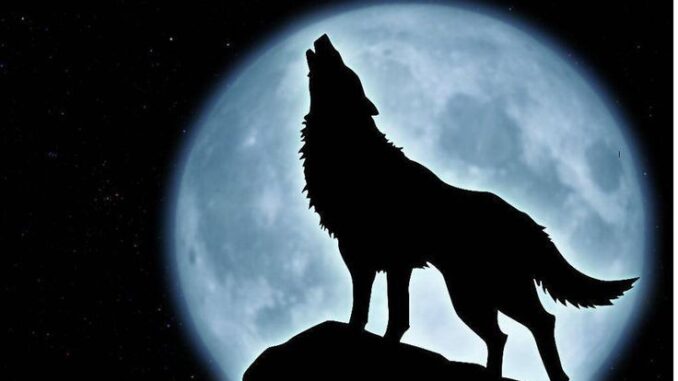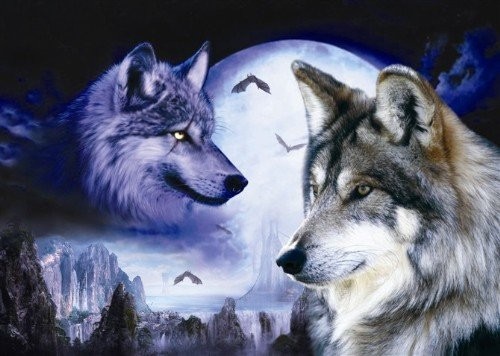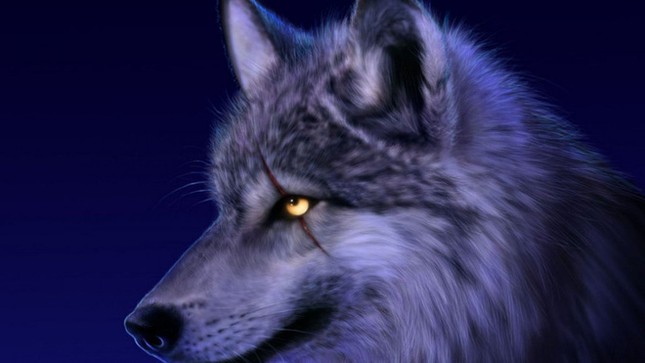
Wolves are nocturnal animals. When it is just getting dark, hungry wolves often travel in packs to find prey, making low-pitched howls as they go. The sound of wolves howling at night makes people feel creepy, in fact it is not to scare people, but has another meaning.
Animal cries are information signals to communicate between animal herds. In different situations, animals will often make different cries. Crying is sometimes very related to reproductive habits. For example, in the reproductive period of deer, male deer often make special cries to find a mate.
The howling of wolves at night is to gather the herd or call each other through howling, such as mother wolves often howl to call their cubs, male wolves howl to call their female wolves, and only go out to find food after gathering into a herd. During the reproductive period, wolves also often howl to find a mate. During the child-rearing period, in addition to the mother wolf howling, hungry wolves will also howl shrilly for food.
Why can’t humans domesticate wolves?
Dogs and wolves are genetically very similar, which makes it difficult for biologists to understand why wolves remain so wild, while dogs are poised to become “man’s best friend.”
Evolutionary biologist Kathryn Lord of the University of Massachusetts Amherst has found that the different behaviors between dogs and wolves are related to the animals’ earliest sensory experiences and the critical period of socialization.
By studying the responses of seven wolf and 43 dog pups, Lord determined that both dogs and wolves develop their sense of smell at 2 weeks of age, hearing at 4 weeks of age, and vision at an average of 6 weeks of age.
However, the two subspecies enter their critical socialization periods at different ages. Dogs begin around 4 weeks, while wolves begin at 2 weeks of age. So the way each subspecies experiences the world during those crucial months is very different, and likely leads to different developmental paths, she says.
Lord reports that wolf pups are still blind and deaf when they begin to walk and explore their environment at two weeks of age.
“When wolf pups first hear, they are initially frightened of sounds, and when they first see, they are also frightened of new visual stimuli. As each sense becomes involved, wolf pups experience a new round of sensory shocks that dog pups do not,” she adds. Meanwhile, puppies only begin to explore and walk after all three senses of hearing, smell and sight are fully functional.
The significant developmental differences between dog and wolf pups have led to marked differences in their relationships with society, especially with humans. This new information will help in the management of wild and captive wolf populations, Lord says.
Why are wolves called “forest killers”?
For any of us, when entering the forest, the most frightening thing is not tigers or lions, but wolves.
The reason is that wolves operate in packs, they have a very sensitive sense of smell and a very flexible ability to organize hunting, plus their fierce and cunning nature, so the prey when facing them will have an extremely low chance of survival.
What is more special is that they exist in a wider range and are much more numerous than other carnivores such as tigers, leopards, lions … so the possibility of us encountering them is also higher.
For these reasons, although they do not have unparalleled strength, wolves are the real killers of the green forest, carnivores that have existed for thousands of years and never worry about extinction.
So how did wolves survive and stay so strong?
Rule number 1: Wolves have no pride, if they encounter an animal stronger than them, they will retreat.
Even if the entire pack of wolves is faced with only a few lions, the wolves will call each other to retreat, because they know that winning at a heavy price is no different from losing.
Rule No. 2: Teamwork and pack spirit are number 1
If the wolves are forced to face stronger opponents, the entire pack will attack together, and after the battle the whole pack will never abandon the injured one.
Rule No. 3: Always use tricks to achieve the final result, so that the price to pay is the smallest
Although wolves are considered “jungle killers”, they do not only use their teeth and claws, but they always know how to use their heads in everything, and for things that do not necessarily require strength, they will find other ways to do it.
That is why people always say that wolves are “evil”, because in hunting, if they find a way that requires the least amount of effort, they will do it that way.
Rule #4: Always be cold and cruel to the enemy
Wolves are carnivores, so whether they like it or not, they cannot have a “conscience” when hunting, and when they encounter enemies, if they forgive them, it means they will kill themselves. So wolves are always compared to being cruel and heartless.



